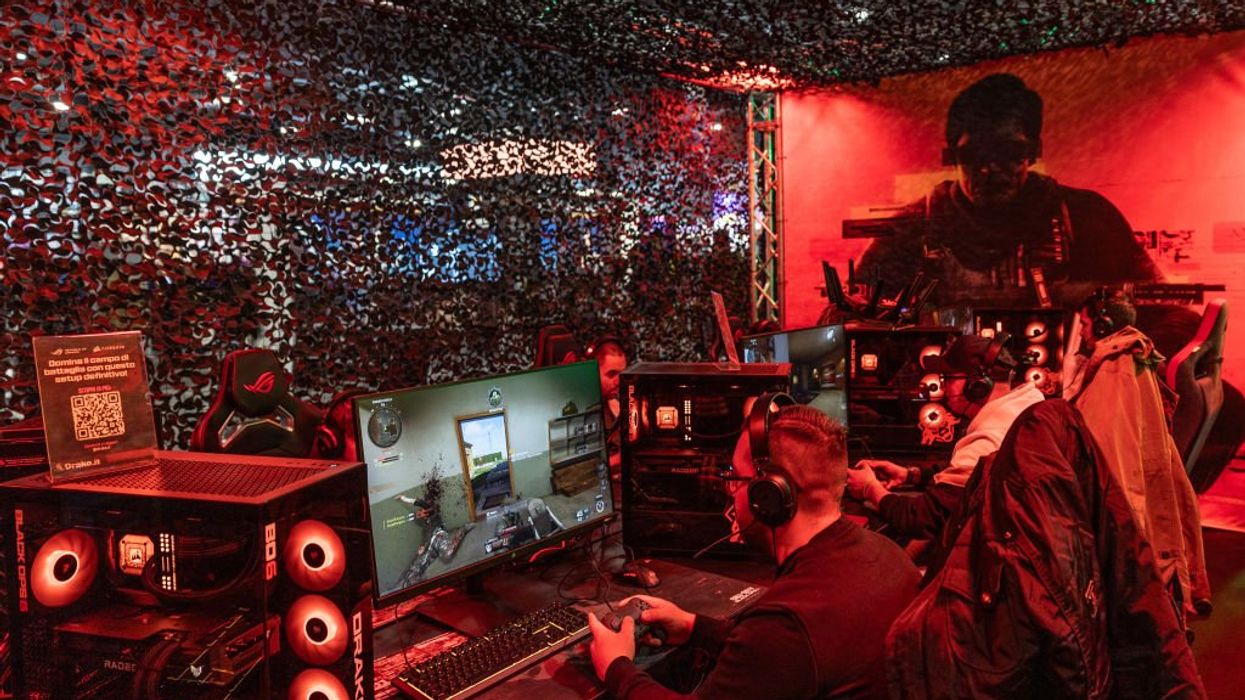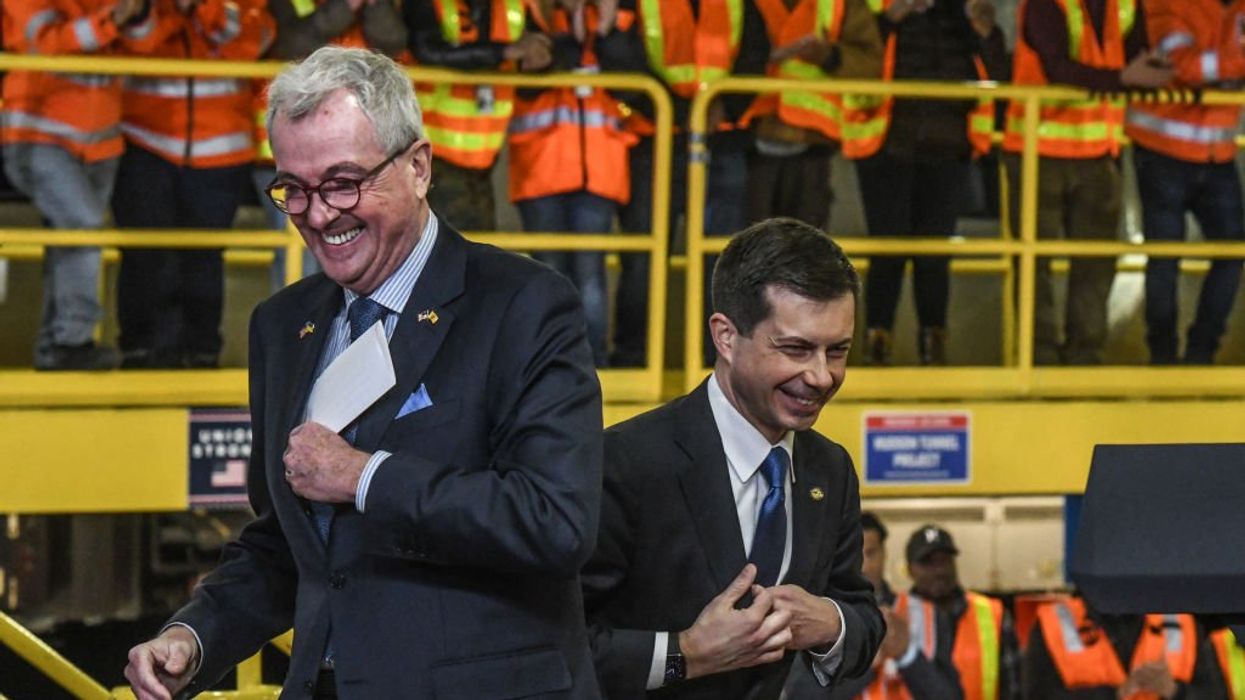There’s a scene from the 1970 film "Patton" in which George C. Scott - playing George S. Patton - is peering through binoculars at the approaching Nazi forces...doing exactly what he predicted they would.
“Rommel!” he shouts from the hilltop, grinning, “You magnificent (expletive), I read your BOOK!”
In other words, Patton knew exactly what Rommel would do, because he knew Rommel implicitly. He had studied him, learned his ways, and familiarized himself with who he was as a person. He also never invited Rommel into his inner circle...but we’ll get to that in a moment.
Similarly, 6th century Chinese General Sun Tzu, in "The Art of War," is alleged to have admonished those around him to “keep your friends close, and your enemies closer.”
 Members of a Muslim congregation pray during a Jumu'ah prayer service at the Islamic Society of Bay Ridge mosque on Friday, Aug. 16, 2013 in the Brooklyn borough of New York. Credit: AP
Members of a Muslim congregation pray during a Jumu'ah prayer service at the Islamic Society of Bay Ridge mosque on Friday, Aug. 16, 2013 in the Brooklyn borough of New York. Credit: AP
Regardless of its correct attribution (there are several ideas, from Tzu to Machiavelli to "The Godfather II") - the point rings true. It is careless to lose sight of one’s foes.
But, just how close is too close?
Recently, two candidates for chaplaincy in the United States Military were just selected to serve the Army and Air Force, respectively. Per a statement released from the soldiers’ religious organization:
“the significance of this news is that the Department of Defense (Army, Air Force, and Navy) has not selected an ISNA endorsed chaplain for active duty in over 15 years. The two Chaplain Candidates are: SGT Mustapha Rahouchen, an enlisted Soldier currently assigned to Fort Gordon, GA and Chaplain (CPT) Rafael Lantiqua, who was recently assigned as an active National Guard Chaplain in Austin, TX however, he recently lost his position due to his unit’s personnel drawdown and recently expressed some concern finding another Chaplain position.”
Indeed, the military has not selected an ISNA endorsed chaplain in quite some time...and for good reason.
 Chaplain Capt. Rafael Lantiqua. Photo Credit: Freedom Fighter Radio
Chaplain Capt. Rafael Lantiqua. Photo Credit: Freedom Fighter Radio
ISNA, or Islamic Society of North America, has been described (among other things) as "one of the chief conduits through which the radical Saudi form of Islam passes into the United States." Their collusion with radical organizations, including but not limited to the Muslim Brotherhood (a radical organization quite vocal about its intent to carry out jihad from within the United States), Hamas, and so forth, is ongoing and persistent. ISNA was also an unindicted “co-conspirator in the largest terrorism financing trial in American history.”
This isn’t the first time ISNA has bubbled to the surface of American politics and policy. Indeed, President Barack Obama has met with the group several times, has formally extended congratulatory messages to the group, and once invited an ISNA representative to speak at the White House Prayer Breakfast.
Given ISNA’s international reputation and our own president’s multiple interactions with its members, it’s difficult to imagine that this administration and leadership within the military are entirely unaware of the group’s radical ties. Hardly.
In recent months, we’ve all become painfully aware of the fact that our government is capable of intelligence gathering far and beyond what is necessary to understand the dangerous significance of this, or any other group.
Through things like the NSA spying scandal, we were given just a taste of our government’s capability to drill down to the minutest of data points on every single American. Through the IRS targeting scandal, we learned that the IRS has the capability to set triggers in place to notify decision makers when a group’s name meets certain criteria, in order to then marginalize those groups and even deny status tax exempt status based on (right wing) political affiliation.
In other words, we live in a country run by a government that can obtain virtually any information it wants, at virtually any time, and by virtually any means. Are we really to sit here and believe that our government and decision makers in the military are oblivious to ISNA’s - and in turn, the Muslim Brotherhood’s - threat on this soil?
 Pro-Egyptian military supporters gather in front of the White House August 22, 2013 in Washington, DC. The supporters denounced the Muslim Brotherhood while giving support to General Abdul Fattah al-Sisi. Credit: Getty Images
Pro-Egyptian military supporters gather in front of the White House August 22, 2013 in Washington, DC. The supporters denounced the Muslim Brotherhood while giving support to General Abdul Fattah al-Sisi. Credit: Getty Images
While some may make assumptions as to the motive behind pointing out the president’s association with this and other groups, I’ll quote the president’s oft-used catch phrase: “Let me be clear.”
Simply put, I’m not interested in Barack Obama’s personal, religious association at this point. I’m interested in actions, and what those actions do to our country, and to our freedoms.
Did the president directly place those two chaplains in their positions? No.
But it’s important to note that under this administration, which has been more than welcoming to ISNA, this is the first time in 15 years that ISNA has secured a formal presence in the military’s religious wing. That’s significant. Attitude reflects leadership...and we’ve got a president in office who deems it appropriate to associate with those having direct ties to enemies of the United States, and to freedom - whoever they may be and whatever they happen to believe.
The Washington Post aptly pointed out (in reference to Ukraine) that we have a president who leads “based more on how he thinks the world should operate than on reality.”
 President Barack Obama. Credit: AP
President Barack Obama. Credit: AP
In other words, we have a president who looks at the world as he wishes it to be, not it how actually is. Whether Barack Obama truly sympathizes with these groups and their stated purpose, or through wishful thinking wants to see ISNA and other groups benevolently fill a supposed void in diversity and political correctness - this is irrelevant. He and his administration have beckoned these groups with open arms, and that’s what counts.
It is one thing entirely to, as Sun Tzu (or whoever truly spoke the famed words) notes, “keep your enemies closer;” it is entirely another to lay out the welcome mat and invite the enemy in, while failing to recognize them for what they really are.
“Read their book.” Know their ways. Don’t place the very danger we’re trying to combat in the midst of those doing the combating.
We don’t need our enemies this close.
–
TheBlaze contributor channel supports an open discourse on a range of views. The opinions expressed in this channel are solely those of each individual author.

 Members of a Muslim congregation pray during a Jumu'ah prayer service at the Islamic Society of Bay Ridge mosque on Friday, Aug. 16, 2013 in the Brooklyn borough of New York. Credit: AP
Members of a Muslim congregation pray during a Jumu'ah prayer service at the Islamic Society of Bay Ridge mosque on Friday, Aug. 16, 2013 in the Brooklyn borough of New York. Credit: AP
 Chaplain Capt. Rafael Lantiqua. Photo Credit: Freedom Fighter Radio
Chaplain Capt. Rafael Lantiqua. Photo Credit: Freedom Fighter Radio
 Pro-Egyptian military supporters gather in front of the White House August 22, 2013 in Washington, DC. The supporters denounced the Muslim Brotherhood while giving support to General Abdul Fattah al-Sisi. Credit: Getty Images
Pro-Egyptian military supporters gather in front of the White House August 22, 2013 in Washington, DC. The supporters denounced the Muslim Brotherhood while giving support to General Abdul Fattah al-Sisi. Credit: Getty Images
 President Barack Obama. Credit: AP
President Barack Obama. Credit: AP


